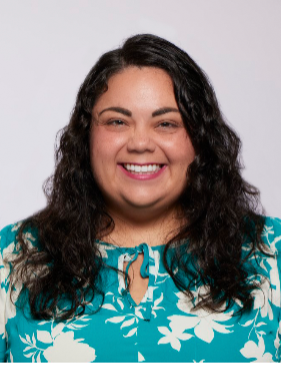Effective school-based mental health service provision can be enhanced by collaboration with allied providers outside of the school context. Services to students may be strengthened when professionals collaborate across roles and institutions. For example, schools can partner with outpatient or community mental health clinics, inpatient psychiatric units, physicians, community organizations, and religious or cultural institutions. When planning for continuity of care across settings, providers must be aware of legal and ethical requirements, differentiated roles and duties of various collaborators, and best practices for information sharing and joint decision making.
LEARNING OBJECTIVES:
PRESENTERS:

Miranda Zahn, PhD, MCSP
Miranda Zahn, PhD, NCSP, is an Assistant Professor of School Psychology at the University of South Dakota. She conducts research, training, and technical assistance in school-based mental health services. Specifically, Miranda focuses on the role of teachers in school supports for youth mental health, effective and supportive mental health training for school psychology graduate students, and enhancing the well-being of adults and youth in schools and youth-serving organizations through systems reform. In addition, Miranda is a school psychologist and school mental health provider at Nebraska’s Educational Service Unit #1, where she provides direct services to youth as well as training and systems consultation to schools, a faculty member in South Dakota’s Leadership and Education in Neurodevelopmental Disabilities (LEND) interdisciplinary training program, and a consultant for the National Center for School Mental Health.

Stephanie Campbell, PhD
Dr. Stephanie Campbell is a half-Filipina, mid-fat, cisgender daughter of an immigrant who grew up in a one-stoplight town in Arkansas. She currently serves as the Crisis Liaison & Community Trainer for the Hawaiʻi DOH Child & Adolescent Mental Health Division. Dr. Campbell participates in systems-level interventions for statewide mental health crisis response & develops free training opportunities for community members and providers—including certification of new PC-CARE providers. Dr. Campbell's research centers around minoritized identities & their influence on mental health. She is especially interested in how experiences of race, body image, & weight stigma affect the wellbeing of children & adolescents—particularly in relation to the implications of culture, socioeconomic status, power/privilege, & gendered societal expectations. Outside of work, Dr. Campbell enjoys cooking without recipes, consuming an absurd amount of podcasts/YouTube, ocean paddling, & jigsaw puzzling.
The Great Lakes MHTTC is offering this training for individuals working in HHS Region 5: IL, IN, MI, MN, OH, WI. This training is being provided in response to a need identified by Region 5 stakeholders.